Is Our Family (Legally) Safe?
News Based on facts, either observed and verified directly by the reporter, or reported and verified from knowledgeable sources.
For LGBTQ+ parents, the path to legally-recognized parentage isn’t always linear.

Good morning! Today is Wednesday, November 17, and you are reading today’s section of Examiner+, a digital newsmagazine serving Westchester, Putnam, and the surrounding Hudson Valley.
Need to subscribe — or upgrade your Examiner+ subscription to enjoy full access to all of our premium digital content? Details here.
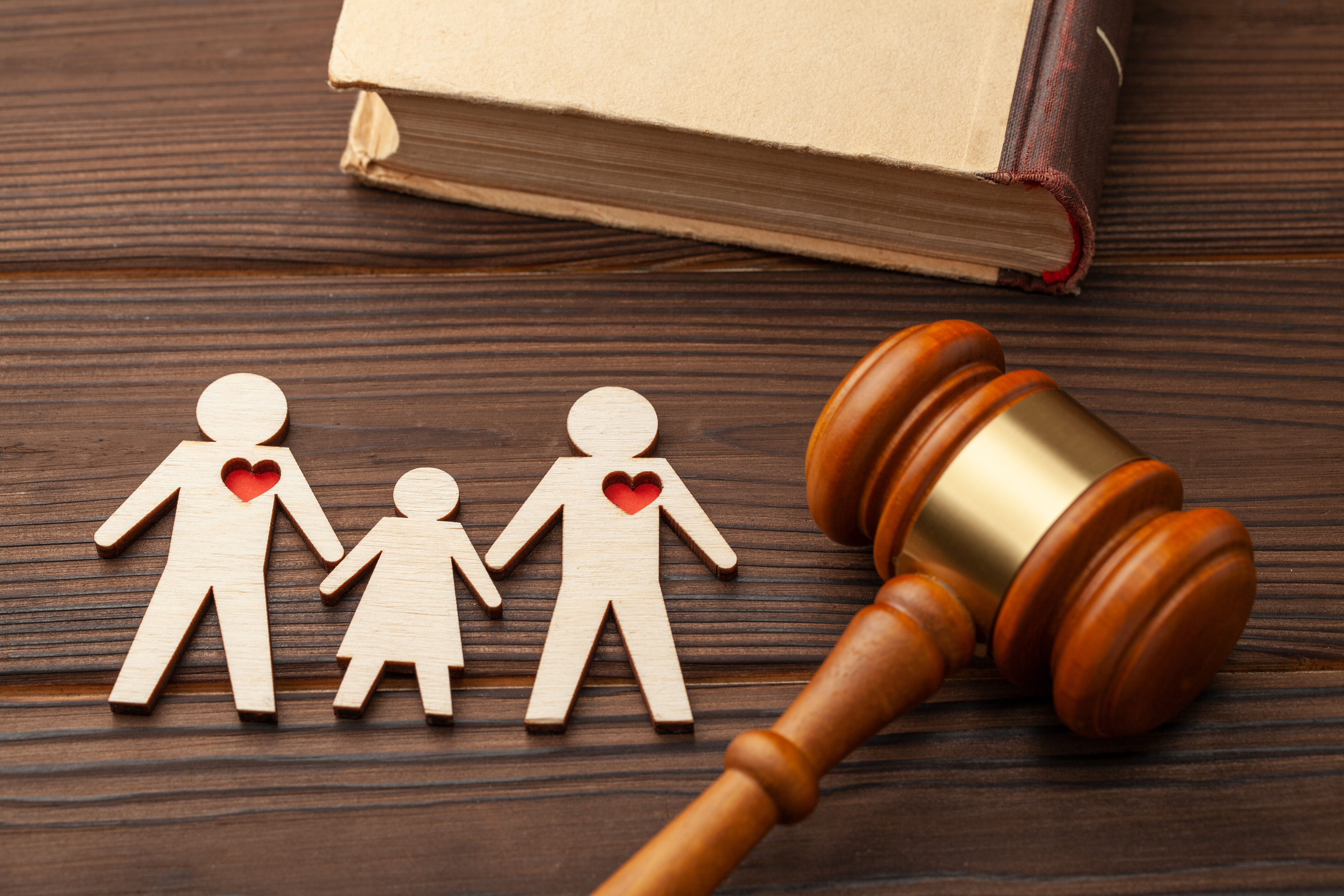
Ron Poole-Dayan, Executive Director of Men Having Babies (MHB), had to travel out of New York State to start a family with his husband through gestational surrogacy. Poole-Dayan’s twins, now 20 years old, were born in 2001 by a gestational carrier in New Hampshire, which came with its own set of complications.
“There were added fees and costs associated with the fact that we were in one state, she was in another state, and the egg donor was in a third state,” Poole-Dayan said.
In the two decades since his children were born, Poole-Dayan saw no change to the law that made gestational surrogacy illegal in New York, despite significant lobbying from LGBTQ+ advocacy organizations and individuals or couples looking to start families using the fertility approach. In February, then-governor Andrew Cuomo announced that the Child-Parent Surrogacy Act (CPSA) — which would, at last, allow gestational surrogacy in New York State — officially took effect.
Prior to the CPSA, LGBTQ+ couples, single individuals, or different-sex couples struggling with fertility in New York looking to have a child through gestational surrogacy needed to travel out of state like Poole-Dayan and his husband did.
“The bill is going to make it a more civil, better human experience, as well as less financially taxing,” Poole-Dayan said.
The cost of surrogacy can range from $100,000 to $150,000. In states like California, where surrogates are in particularly high demand, the cost can be even higher. Traveling out of state may put the cost — already out of reach for many LGBTQ+ couples — even further out of their budget.
“A large state like New York being added to this pool should really help,” Poole-Dayan said.
Although the law was signed in April 2020 and took effect in February 2021, there are some regulations that have not yet been finalized and the process of approving surrogacy agencies and clinics is going very slowly, Poole-Dayan said.
In fact, there has not yet been a single couple who have been able to take advantage of the new legislation. Poole-Dayan said the recent change of gubernatorial hands and COVID-19 may be impacting this pace.
https://instagram.com/p/CU5a3dGvOo6/
Katherine Miller, an attorney and partner at Westchester-based Miller Law Group, thinks the law will start being implemented next year.
In addition to lifting the ban on gestational surrogacy, the CPSA establishes legal criteria for gestational surrogacy agreements with protections for parents and surrogates and creates a Surrogates’ Bill of Rights.
“The Surrogates’ Bill of Rights in New York is extremely robust in terms of protecting surrogates and provides that surrogates get continuous support throughout the process,” Shara Goldfarb, a family law attorney and partner at the Miller Law Group, said.
“This statute could be the model code for [the American Bar Association] because it’s so robust,” Sarah Hechtman, a family lawyer and partner at the Miller Law Group, said. “But it does make one wonder whether the process here in New York is going to be more onerous, more expensive, more complex, and whether, at the end of the day, that just makes people go elsewhere.”
“I don’t know that anybody knows the answer to that yet.”
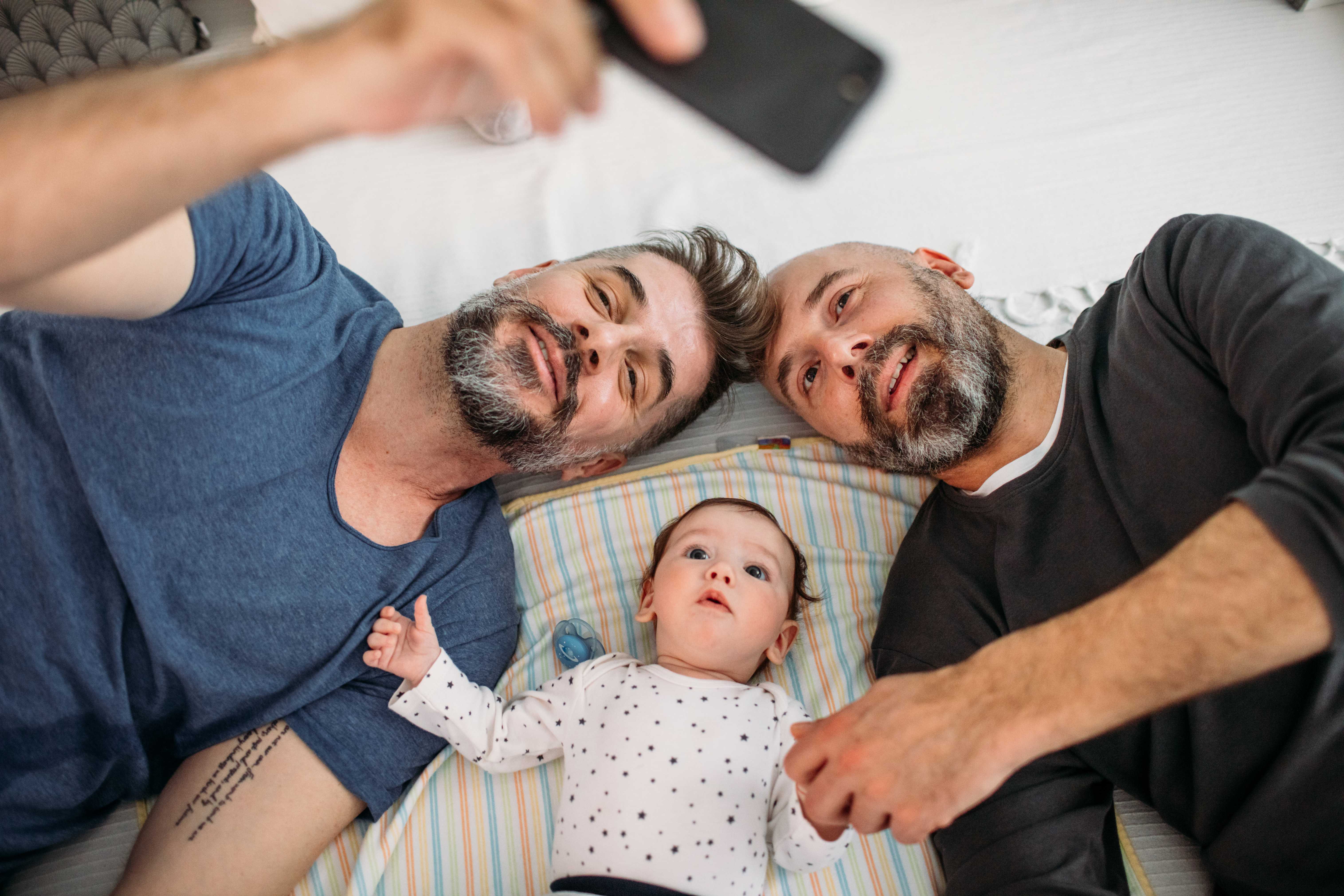
(Getty)
WEIGHING THE OPTIONS
The legislation also creates a streamlined process for establishing parenthood when one of the individuals is a non-biological parent, a process known as “second-parent adoption.”
Prior to the CPSA being enacted, the second-parent adoption process presented many antiquated barriers, especially for LGBTQ+ couples seeking to adopt their partner’s biological child. With the new legislation, families will only need to make one visit to the court while the child is in utero to recognize parenthood.
However, many LGBTQ+ families in New York are still going through the second-parent adoption process — which they say is invasive, expensive, and time-consuming — for their children who were born before the CPSA went into effect.
Beacon resident Laura Leigh Abby recently went through the second-parent adoption process with her wife, Samantha, for their two children, who were born in 2016 and 2020. The process, which took around six months, was completed in time to kick off Pride month this past June.
Despite being married and having both of their names listed on their children’s birth certificates, Laura and Samantha knew that this alone may not protect them as non-biological parents.
“Birth certificates are great evidence that we’re parents of our children,” Cathy Sakimura, Deputy Director and Family Law Director at the National Center for Lesbian Rights, said. “But alone, they don’t have the force of the law.”
That’s why, Sakimura said, she recommends a non-biological parent elect one of three options: a second-parent adoption, parentage judgment, or voluntary acknowledgment of parentage. A second-parentage adoption or parentage judgment both involve a court proceeding, but a voluntary acknowledgment of parentage is a no-cost form an intended parent can fill out. Often, a hospital administrator brings this form to the hospital room after a baby is born.
Every state has a voluntary acknowledgment of the paternity process, which allows a man who believes that he is the genetic father to voluntarily sign the form. Historically, the primary driver for this process was to enforce child support from fathers.
Now New York, thanks to the CPSA, allows women in same-sex partnerships and non-genetic parents who used assisted reproduction to sign these voluntary acknowledgments.
However, Sakimura still recommends that non-biological parents who have the financial means do an adoption or parentage judgment on top of the voluntary acknowledgment, at least for the time being.
“In these early days when they’re just beginning to open this up to people who are not genetic fathers, it could be practically difficult for people to use these [alone] to show that they’re a parent before there’s a broader understanding of them,” Sakimura said.
Although states generally acknowledge statuses granted in other states, conservative states may have a more limited view of parentage, which could cause difficulties for LGBTQ+ non-biological parents.
“If you are unmarried partners, second-parent adoption is highly, highly recommended,” Christine Klein, a Hawthorne-based lawyer with experience in LGBTQ+ law, said. “If you are married partners, it is still highly recommended, even though New York would give you pretty much the same rights as any heterosexual couple would have if they had a child together.”
By completing the second-parent adoption process, families are protected under the Full Faith and Credit Clause of the U.S. Constitution, which safeguards a non-biological parent’s legal rights in every U.S. state and territory, as well internationally if the country is a signatory to The Hague Convention.
With this protection, the non-biological parent has full legal rights to their child in case the couple gets divorced and a custody battle arises or the biological parent dies.
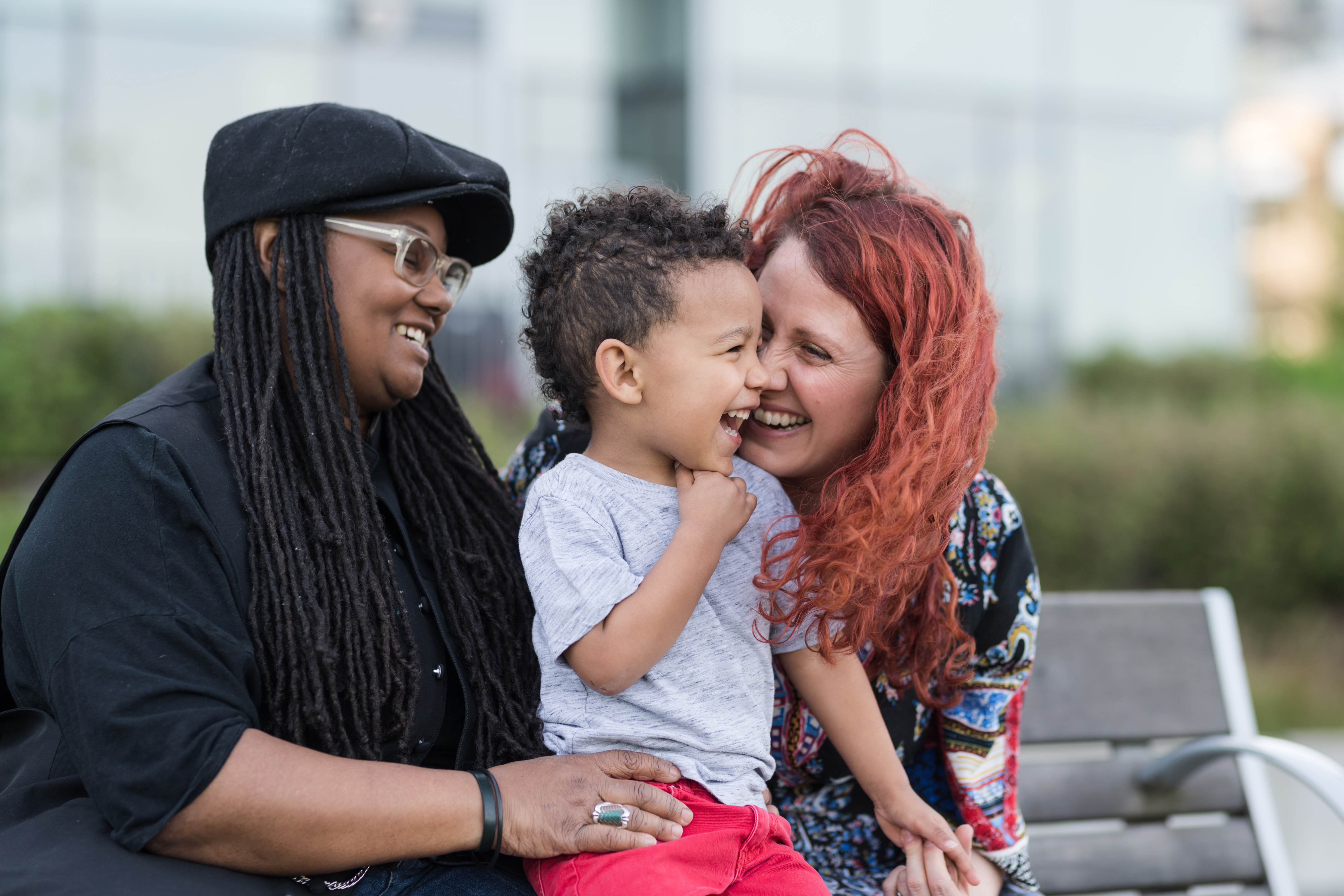
(Getty)
THE HIGH COST FOR SOMETHING PRICELESS
“The longer Trump was in office, the scarier the whole landscape got for us in parenting,” Abby said. “And the question was ‘how can we really be sure that our family is 100 percent safe and legally protected for our peace of mind?’”
Klein said that when the last Supreme Court appointment was made, her phone was ringing off the hook.
The second-parent adoption process in New York mirrors the exact process potential adoptive parents must go through when adopting a child they have never met and did not directly participate in the planning or conception of the baby — for example, through reciprocal IVF, IVF, or IUI.
Background checks must be run, fingerprints are taken, a home visit is conducted, and financial information and medical history are handed over. Oftentimes, employment verification letters and a letter from the child’s pediatrician must be included in the second-parent adoption application.
Klein said the second-parent adoption process in Westchester costs anywhere from $3,000 to $4,500, and throughout the state, the cost varies county to county. The home visit, Klein said, ranges greatly, from $0 to $1,500 depending on the jurisdiction.
“We were pissed off that this is something we had to do to protect our families, that it was our responsibility to keep our kids safe legally, that these just aren’t protections that we’re afforded,” Abby said.
Abby said, at the end of the day, it was an aggravating and expensive chapter for her family, but the short-term disruption was worth the long-term legal protections for her and Samantha as parents.
“It’s just another step in the long road to parenthood for LGBTQ+ couples,” Laura said. “And these are expensive extra steps that not all couples can afford.”
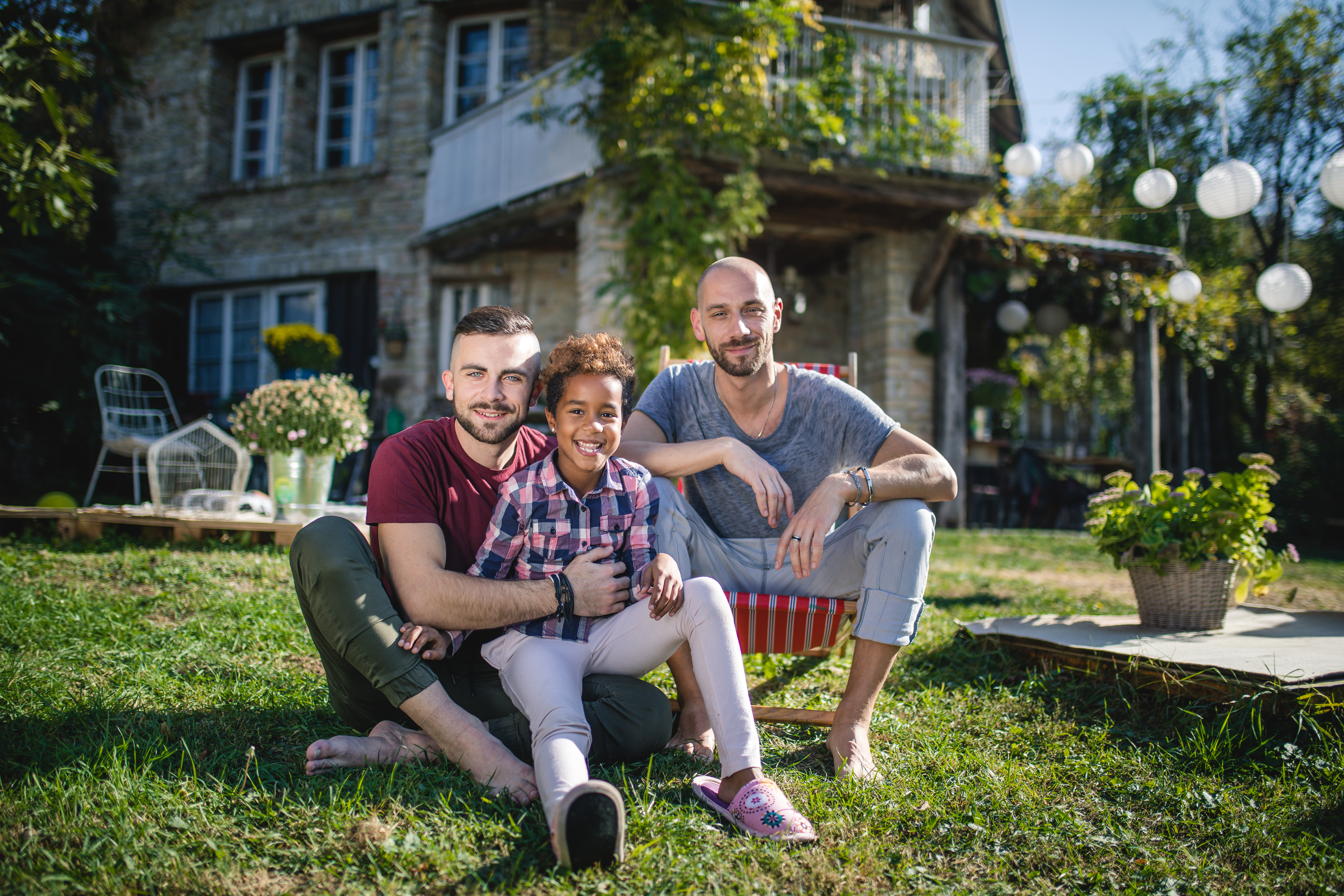
(Getty)
SHARING THE EXPERIENCE
Lora Liegel, who lives in Washington with her wife and two children, initially did not know about the second-parent process, only finding out about it after a lawyer came to speak at a Seattle queer parenting group they were a part of.
“The lawyer explained that for folks who were not the birth mother, our rights might not be protected,” Liegel said.
Soon after, Liegel decided to look into the legal process and pursue it for her firstborn child.
Liegel said the process was invasive but luckily she found a caseworker who allowed families to come to her office instead of a traditional home visit.
“The system is more set up for people who are adopting children who they don’t have any real connection to,” Liegel said. “It seems like second-parent adoptions fit somewhere in between, [and] we get a little bit lost in the system.”
During the process, Liegel began writing a memoir about her experience, Second Parent, which she recently self-published. Liegel also created an Instagram account with the same name where non-biological lesbian parents can share their own stories and foster community.
https://instagram.com/p/CQeQtLNBv4_/
Liegel said she was inspired to write Second Parent because there aren’t many books out there on this topic. Her book joins others like The Other Mother, She Looks Just Like You: A Memoir of (Nonbiological Lesbian) Motherhood, and the 2006 Lambda Literary finalist Confessions of the Other Mother: Nonbiological Lesbian Moms Tell All.
Now, Liegel is gearing up to go through the second-parent adoption process again for her second child.
“Having gone through the process already before, I want to do it and I know I can, but it’s still not easy.”
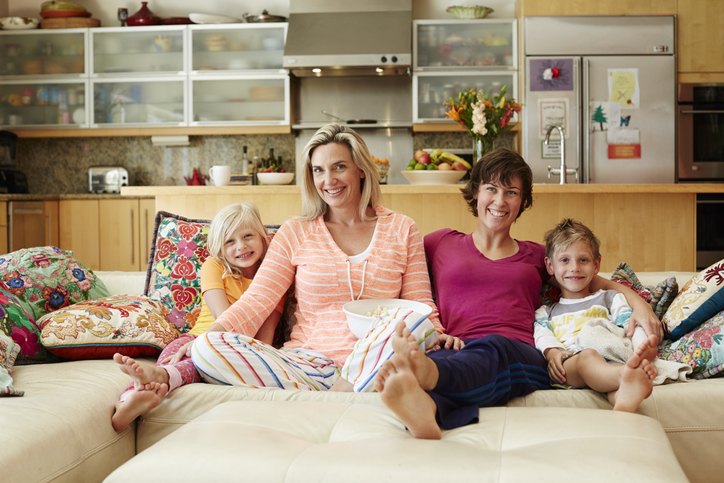
THE FIGHT CONTINUES
Although the CPSA is a landmark law LGBTQ+ New Yorkers will be able to take advantage of, advocates say there is still a long way to go in the fight for fertility equality, a term MHB helped coin.
Poole-Dayan and other leaders of LGBTQ+ advocacy believe that infertility should no longer be defined as a physical condition but rather a social one. In this framework, people are not infertile because their bodies refuse to cooperate with babymaking. Rather, their specific life circumstances — for example, being a cisgender man married to another cisgender man — have made them unable to conceive or carry a child without medical intervention.
Following this framework, a category of “social infertility” would provide LGBTQ+ individuals or couples unable to form families with both the legal and medical mechanisms to do so.
Miller said she thinks legal inequities that persist for LGBTQ+ couples are also a matter of implicit bias.
“If we can start thinking about ways to make family formation for nontraditional families easier, more seamless, and not so difficult, then we start thinking about those families in a more inclusive way,” Miller said.
Sakimura said that a few states have enacted what they refer to broadly as a confirmatory adoption process, which is helping to protect the non-biological parent’s rights in an even simpler way.
“It is essentially free to do a confirmatory adoption in California,” Sakimura said. “You have to be married, you have to be on the birth certificate, and you do have to fill out a lot of paperwork, but there’s no home visit, background check, court appearance, and court fees.”
This simplified process, in many ways, seeks to confirm a status and sentiment many non-biological parents who have gone through the second-parent adoption process already feel — that they are the parent of their child.
Sakimura does not see the second-parent adoption process going away anytime soon, but she said that more movement in the expansion of the voluntary acknowledgment of parentage and the free confirmatory adoption process are both significant steps in the right direction.
“It’s really a great trend that states are starting to expand [the voluntary acknowledgment of parentage] and recognize their value to people and how it is discriminatory to only allow men who believe they’re genetic fathers to sign them.”
Klein said in 2015 after Obergefell v. Hodges passed, she thought the second-parent adoption part of her business was going to die off altogether.
“I thought, it’s my favorite thing that I do, but from a social justice perspective, I’ll be happy to see it go,” Klein said.
Now, Klein, erring on the side of caution, doesn’t think the process will go away completely. Long-term, she could see it becoming unnecessary for the vast majority of people, but for now, she isn’t holding her breath.
“I hope I’m wrong, but at the present moment, I don’t see an end in sight.”
Bailey Hosfelt is a full-time Reporter at Examiner Media, covering LGBTQ+ issues, climate change, the environment, and more. You can follow Bailey on Twitter at @baileyhosfelt.
We hope you’ve enjoyed today’s section of Examiner+. We love honest feedback. Tell us what you think: examinerplus@theexaminernews.com

Examiner Media – Keeping you informed with professionally-reported local news, features, and sports coverage.
